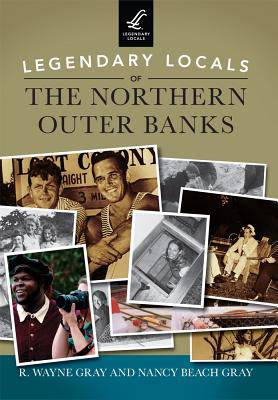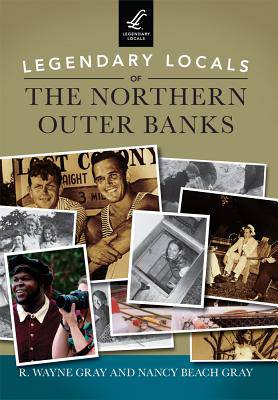
Bedankt voor het vertrouwen het afgelopen jaar! Om jou te bedanken bieden we GRATIS verzending (in België) aan op alles gedurende de hele maand januari.
- Afhalen na 1 uur in een winkel met voorraad
- In januari gratis thuislevering in België
- Ruim aanbod met 7 miljoen producten
Bedankt voor het vertrouwen het afgelopen jaar! Om jou te bedanken bieden we GRATIS verzending (in België) aan op alles gedurende de hele maand januari.
- Afhalen na 1 uur in een winkel met voorraad
- In januari gratis thuislevering in België
- Ruim aanbod met 7 miljoen producten
Zoeken
Omschrijving
The remoteness and isolation of North Carolina's northern Outer Banks has shaped both early settlers and relative newcomers into tough and independent souls. Sir Walter Raleigh's colonists may have mysteriously disappeared from Roanoke Island, but the enterprising homesteaders who followed managed to eke out a living on the windswept and battered banks. Entrepreneur E.R. Daniels ran a line of mail and freight boats that helped connect the Outer Banks to the outside world. Former slave and Civil War hero Richard Etheridge did not shirk from an opportunity to become the first black keeper of a lifesaving station. In the mid-20th century, leaders like Bradford Fearing saw the importance of developing tourism, so that people would come see Paul Green's new outdoor drama, The Lost Colony. Outer Bankers have warmly welcomed visitors, from the time the Wright brothers arrived to today's modern tourists. The challenge now is to balance commercial growth with environmental sensibility so that oystermen, like Georgie Daniels, and fishermen, like Dewey Hemilwright, can continue to ply the waters.
Specificaties
Betrokkenen
- Auteur(s):
- Uitgeverij:
Inhoud
- Aantal bladzijden:
- 128
- Taal:
- Engels
- Reeks:
Eigenschappen
- Productcode (EAN):
- 9781467101851
- Verschijningsdatum:
- 23/03/2015
- Uitvoering:
- Paperback
- Formaat:
- Trade paperback (VS)
- Afmetingen:
- 163 mm x 234 mm
- Gewicht:
- 317 g

Alleen bij Standaard Boekhandel
+ 69 punten op je klantenkaart van Standaard Boekhandel
Beoordelingen
We publiceren alleen reviews die voldoen aan de voorwaarden voor reviews. Bekijk onze voorwaarden voor reviews.









